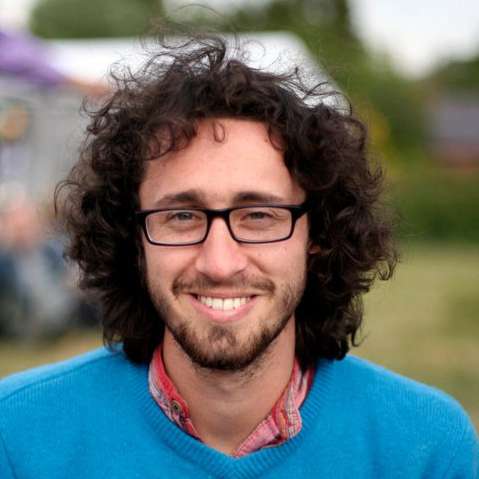When most of us feel like we’re getting a little stale with a piece of work we’re doing – when the thoughts, words or ideas are drying up – we stop for a coffee, stretch our legs, or do a bit of internet browsing. When Richard Wagner realised inspiration was running low for Siegfried, he decided to have a break from it too. Except this break wasn’t your average fifteen-minute game of spider solitaire: this break lasted twelve years and consisted of (amongst other things) writing a different opera – one that would prove revolutionary to Western music. So it was a nifty bit of programming by the BBC Proms 2013 schedulers to sneak a performance of Tristan and Isolde in between Siegfried on Friday and its sequel Götterdämmerung on Sunday. Daniel Barenboim and his Wagner collective were given the night off, as Semyon Bychkov conducted the BBC Symphony Orchestra and Chorus, BBC Singers and a cast of soloists headed by Robert Dean Smith and Violeta Urmana as the opera’s eponymous lovers.
Tristan and Isolde’s revolutionary nature lies in the way Wagner manipulates harmony, breaking the boundaries of harmonic convention with his increasing disregard for the handling of dissonance. This is famously and spine-tinglingly apparent at the opera’s outset, in the opening bars of the orchestral prelude to Act I. The instantly recognisably phrase, with its rising minor sixth and celebrated “Tristan chord”, wound its way out softly into the huge space of the Royal Albert Hall, heralding what was to be an extraordinary five-and-a-half hours of pure, adulterous passion.
The seriousness and intensity with which the orchestra played this prelude, with not a hint of swooning melodrama, boded well for the music to come. It is in the orchestra that Wagner places all his musical richness, all his psychological exploration, all his depth of emotion. Bychkov drew out an appropriately inspired performance from his players, who tirelessly provided the core of the entire music drama. Whilst there were moments in the first act when the tutti orchestra lacked a little punch, the power that the conductor drew on at the paroxysms of Wagner’s soundworld was immense. Moreover, the quieter passages, using minimal forces and often single instrumentalists, were stunningly beautiful. Particularly outstanding for me were lead violist Nobert Blume’s gorgeous Act I duet with Isolde; bass clarinettist Katharine Lacy’s glowering duet with King Marke from Act II; and Alison Teale’s offstage appearance with her cor anglais, mournfully piping the Shepherd’s plaintive song in Act III. I needn’t mention others: suffice it to say, the BBC Symphony Orchestra were the life-blood of this hot-blooded operatic affair.
This is not to say the orchestra’s performance was faultless. Circumstances are not in your favour when you are a soloist trying to compete with a symphony orchestra in a massive space like the Royal Albert Hall. I felt at times Bychkov could have tried a little harder not to drown out the singers completely. Sometimes this was not a problem: when the lovers meet in the King’s garden in Act II, the overwhelming, climactic music expresses their feelings far better than the enamoured ejaculations of the singers, and so Bychkov cleverly allowed the vast wave of orchestral sound to engulf their voices completely. And yet, in general, more slack could have been cut for the soloists, who battled valiantly, but often in vain, to bring their lines out. Worst suffering in this respect was Robert Dean Smith, who, as a stand-in for Peter Seiffert, proved a too-easily-overcome Tristan. I got the impression that we neither witnessed Dean Smith nor Tristan at their best tonight.
Violeta Urmana was more convincing in the role of Isolde, and she managed the continuous emotional highs and lows magnificently, whilst leaving plenty in the tank for that stunning climactic final aria, the Liebestod. I especially enjoyed her mocking tone in Isolde’s ironic summary of her position in Act I, which showed a hint of personality in Wagner’s otherwise rather two-dimensional characters. Stealing the show, though, were singers in supporting roles: Mihoko Fujimura’s Brangäne, Isolde’s faithful maid; and Kwangchul Youn’s betrayed King Marke. Youn’s rich bass was the only voice never at risk of being swallowed up, and his distraught discovery of his champion’s betrayal was the most dramatic moment in the opera, despite (or perhaps due to) being amongst the quietest. Fujimura’s voice seemed to grow throughout the opera, and her facial and bodily expressiveness contributed dramatic depth to her performance: a dramatic engagement often lacking from the other soloists in this concert version.
Wagner might have had twelve years off, but the Wagnerites at the BBC Proms have little over twelve hours to prepare themselves for musical Armageddon in Götterdämmerung. Given the tireless enthusiasm of their reception of Tristan, they probably could manage just twelve minutes. After the deserved standing ovation had abated, of course.


